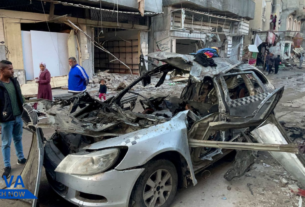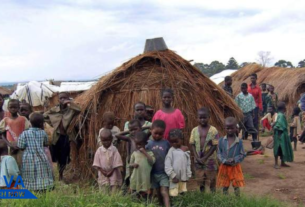UN Secretary-General António Guterres has warned that human rights worldwide are under attack by authoritarian leaders and those fueling armed conflicts. Speaking at the UN Human Rights Council on February 26, he urged global action to protect fundamental freedoms.
“Human rights are being suffocated by autocrats and warmongers,” Guterres said. He highlighted increasing crackdowns on freedom of speech, political dissent, and independent media in many countries.
The speech comes amid growing concerns over government repression, military conflicts, and digital surveillance. Reports indicate that democratic institutions are weakening in multiple regions.
Authoritarian governments have been using harsh laws to silence critics, imprison journalists, and suppress opposition parties. Many leaders justify these actions as necessary for national security.
“In too many places, those in power treat human rights as an obstacle, not a necessity,” Guterres stated. He called for stronger international pressure on governments that violate human rights.
The rise of armed conflicts has also worsened human rights abuses. Wars in Ukraine, Gaza, Sudan, and Myanmar have resulted in widespread civilian suffering and forced displacements.
The UN has documented mass killings, sexual violence, and torture in conflict zones. Some military forces and rebel groups have been accused of committing war crimes.
“War is a breeding ground for atrocities,” a UN human rights investigator said. He urged countries to strengthen efforts to hold perpetrators accountable.
Digital repression is another growing concern. Many governments have increased online censorship, surveillance, and internet shutdowns to control information.
Technology is being used to track and intimidate activists, journalists, and opposition figures. Social media platforms are also being manipulated to spread disinformation.
The UN report warns that attacks on human rights are threatening global stability. It notes that the erosion of civil liberties often leads to economic decline and social unrest.
Guterres urged all nations to uphold their commitments to human rights treaties. He emphasized that respecting freedoms is key to long-term peace and development.
Democratic backsliding has been observed in multiple countries. In some cases, elected leaders have changed laws to stay in power longer, undermining fair elections.
The UN has called on world leaders to protect democratic institutions and ensure independent judicial systems. Many activists believe that international organizations should take stronger action.
“We cannot allow autocrats to dismantle democracy piece by piece,” a human rights advocate said. She called for increased sanctions on regimes that suppress freedoms.
Global protests against government crackdowns have increased in recent years. Demonstrators in Iran, Russia, and China have faced brutal repression from security forces.
The UN has condemned excessive use of force against protesters, including arrests, beatings, and killings. Some governments have passed strict laws to criminalize public dissent.
Despite these challenges, there have been efforts to push back against repression. Grassroots movements and international pressure have led to some policy changes.
Guterres ended his speech by urging world leaders to protect the rights of all people. He warned that failing to act would allow dictatorships and conflicts to spread further.
“The future of human rights depends on the actions we take today,” he said. His remarks serve as a reminder of the urgent need to defend freedom and justice worldwide.




